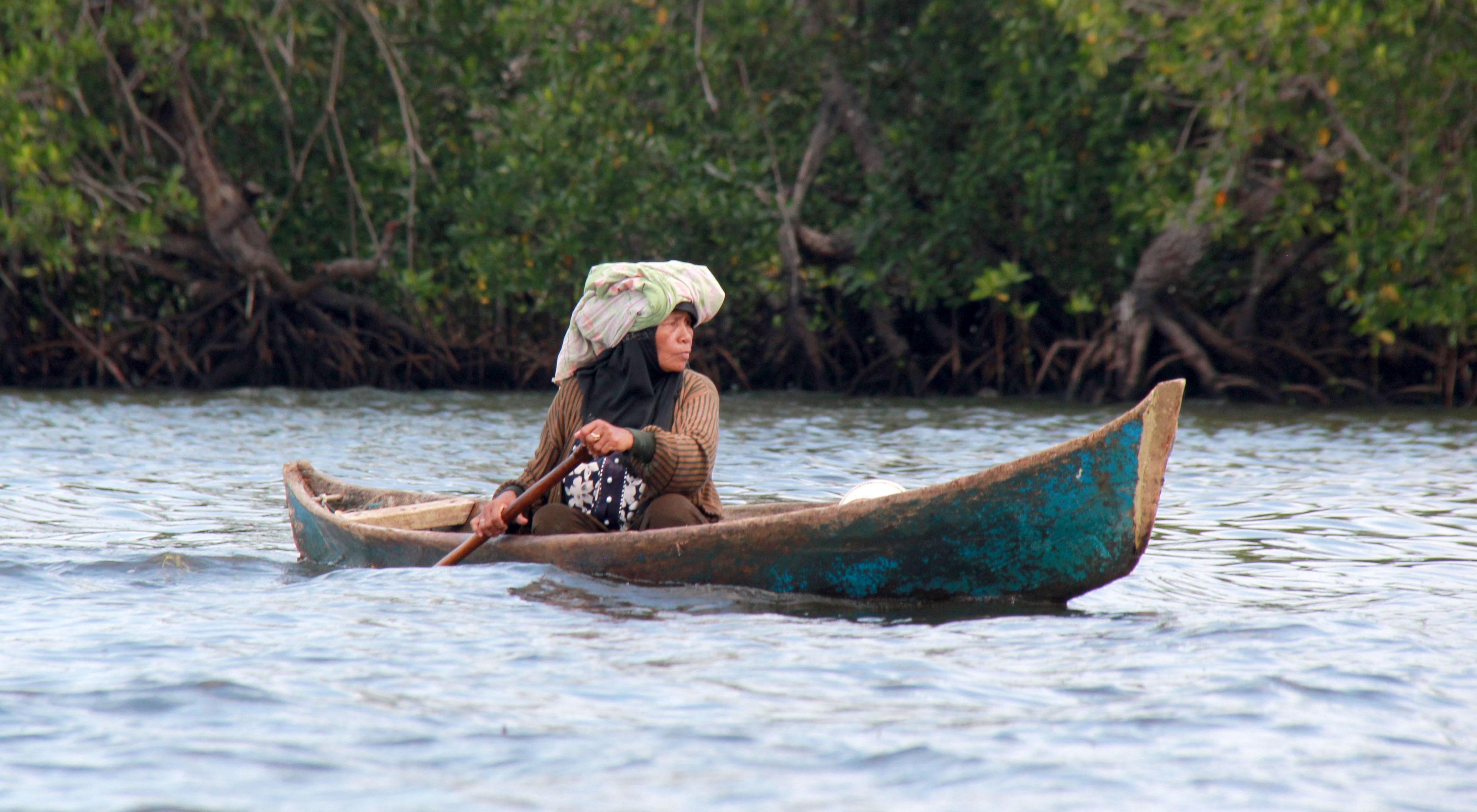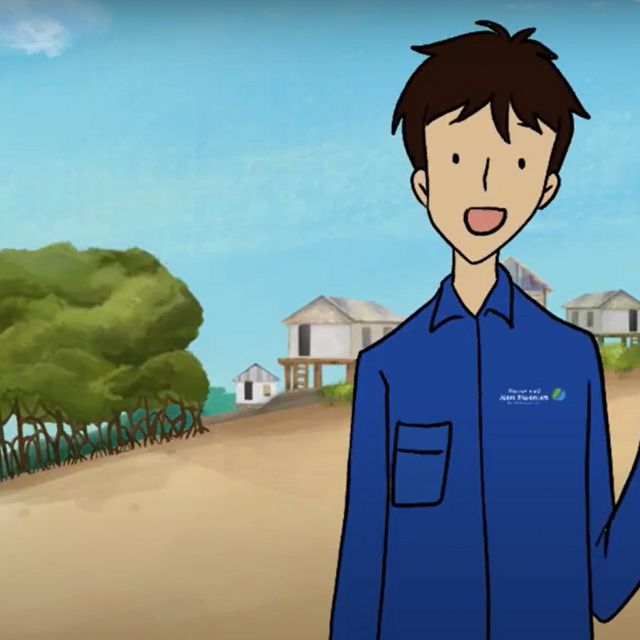Climate change that occurs globally is also felt in numerous coastal areas in Indonesia and causes various adverse impacts, especially for ecosystem and communities
As the impacts of climate change get more intense, appropriate climate change mitigation strategies are needed and prioritizing a Nature-based Solution. Among other things, by building local community awareness to have resilience and responsiveness to climate change and other geological disasters. These initiatives are important to achieving the long-term success of community-based conservation efforts.
Mangroves are essential ecosystems that act as natural fortresses in reducing the impact of climate change. However, the threat of land conversion of mangrove areas (e.g., as a settlement and shrimp ponds) continues to expand. To resolve these challenges, YKAN supported integrated management of the coastal areas to protect and restore mangrove ecosystem is important while increasing the resilience of coastal community and their ecosystem.
Mangrove Ecosystem
The mangrove ecosystem is one of the high-productivity ecosystem, because litter decomposition. Mangroves contributes greatly to carbon storage which can be 3-5 more than tropical rain forests.
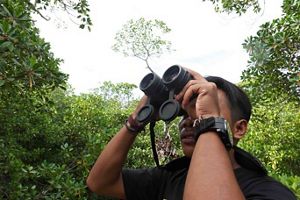
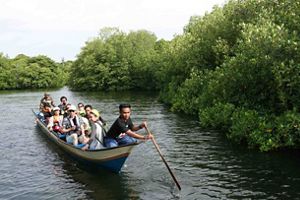
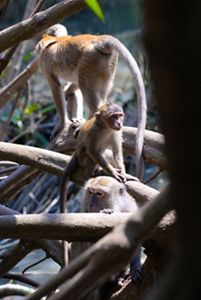
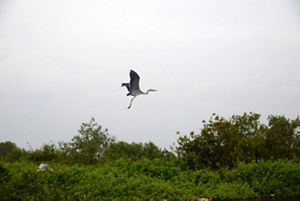
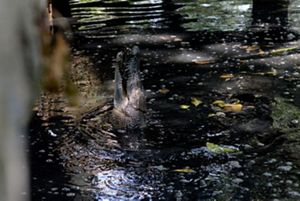

If not us, who will?: Mangrove forests are also a habitat for fish. © Nugroho Arif Prabowo

Mangrove Forest: Through the Mangroves of Tampara Village © Nugroho Arif Prabowo

Macaca fascicularis: Long-tailed macaque. © Oka Rahardian

Milky Stork: Looking for food in the mangrove shallow. © Oka Rahardian

Saltwater crocodile: Preying on fish. © Oka Rahardian
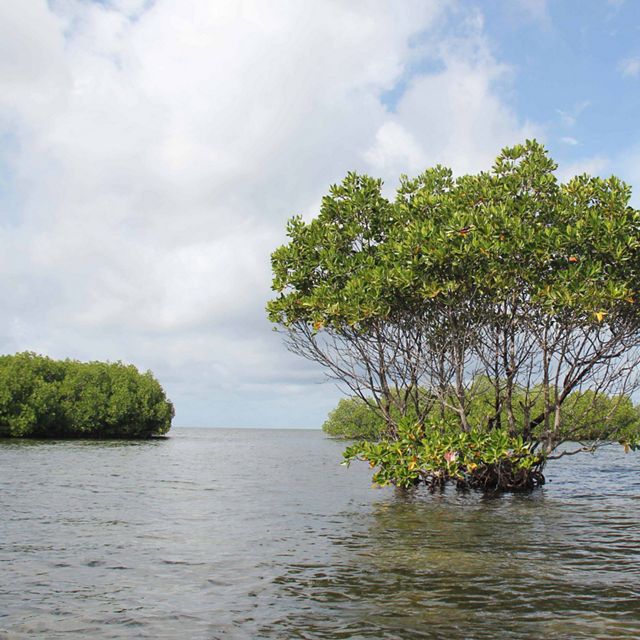
Program Overview
MERA
Mangrove Ecosystem Restoration Alliance


